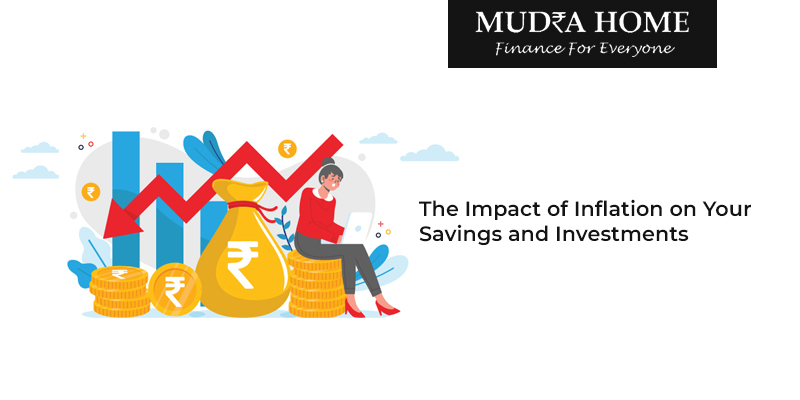
Inflation is an economic phenomenon that affects the purchasing power of money over time. While it’s often discussed in the context of rising prices for goods and services, its implications extend far beyond the grocery store checkout line. Inflation can significantly impact your savings and investments, potentially eroding their value if not properly accounted for and managed.
First and foremost, let’s understand what inflation is. In simple terms, inflation refers to the general increase in prices of goods and services over time, resulting in a decrease in the real value of money. When inflation occurs, each dollar buys fewer goods and services than it did before. This means that the money you have saved or invested may not stretch as far in the future as it does today.
One of the most direct impacts of inflation is on cash savings. If you’re keeping your money in a savings account earning minimal interest, it’s likely that the interest rate won’t keep pace with inflation. As a result, the purchasing power of your savings diminishes over time. For example, if inflation is running at 3% per year and your savings account is only earning 1% interest, you’re effectively losing 2% of your purchasing power annually.
Similarly, inflation can affect fixed-income investments such as bonds. When you invest in bonds, you’re essentially lending money to the issuer in exchange for periodic interest payments and the return of the principal amount at maturity. However, if inflation rises during the term of the bond, the fixed interest payments you receive will buy fewer goods and services, reducing the real value of your investment. This is known as inflation risk, and it’s an important consideration for bond investors, particularly in environments of high or rising inflation.
Stocks and real estate are often seen as hedges against inflation, as their values tend to increase over time in line with rising prices. However, it’s essential to remember that not all stocks and real estate investments perform equally well during periods of inflation. Certain sectors, such as consumer staples, utilities, and natural resources, may benefit from inflationary pressures, while others, such as technology and growth stocks, may face challenges. Additionally, real estate investors need to consider factors such as property location, rental income, and financing costs when assessing the impact of inflation on their investments.
So, what can you do to protect your savings and investments from the erosive effects of inflation? One strategy is to diversify your portfolio across different asset classes, including stocks, bonds, real estate, and commodities. Diversification can help spread risk and enhance the likelihood of achieving positive returns in various economic environments, including periods of inflation.
Additionally, consider investing in assets that have historically outpaced inflation over the long term, such as equities and real estate. While these investments may experience short-term volatility, they have the potential to generate higher returns that outpace inflation over time.
Finally, regularly review and adjust your investment strategy to account for changing economic conditions, including inflation expectations. Working with a financial advisor can provide valuable insights and guidance tailored to your individual financial goals and risk tolerance.
In conclusion, inflation can have a significant impact on your savings and investments, potentially eroding their value over time. By understanding the effects of inflation and implementing strategies to mitigate its impact, you can better protect your financial future and achieve long-term prosperity.